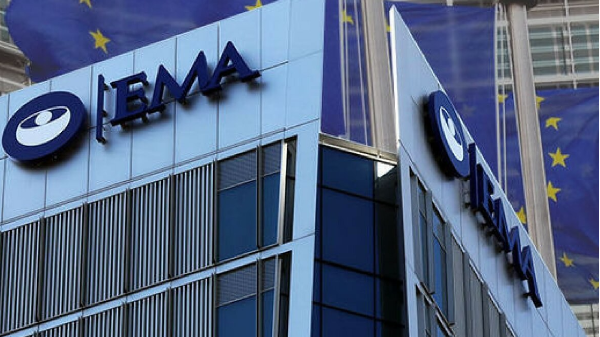Press Releases

20-09-2023 13:54
EMA recommends non-renewal of authorisation for Duchenne muscular dystrophy medicine Translarna
EMA’s human medicines committee (CHMP) has recommended not renewing the marketing authorisation for Translarna (ataluren), a medicine for treating patients with Duchenne muscular dystrophy whose disease is caused by a type of genetic defect called a ‘nonsense mutation’ in the dystrophin gene and who are able to walk.
The recommendation follows the full re-evaluation of the benefits and risks of the medicine during the renewal of its marketing authorisation, including results of a new study which failed to confirm Translarna's effectiveness.
Because Translarna was meant to address an unmet medical need for a serious disease, it received a conditional marketing authorisation in July 2014. This type of authorisation allows a medicine to be authorised on the basis of less comprehensive (complete) data than are normally required, and when the benefits of having it available earlier outweigh any risks associated with using the medicine while waiting for further evidence. Medicines with a conditional marketing authorisation are subject to specific post-authorisation obligations that aim to generate comprehensive data.
In 2016, at the time of the renewal of Translarna’s marketing authorisation, the CHMP assessed new data from a study requested as part of the specific obligations and considered that there were still uncertainties about the medicine’s beneficial effects. The committee therefore requested the company to carry out another study to evaluate effectiveness primarily in a sub-group of patients with a progressive decline in their ability to walk, as they were expected to benefit more from Translarna treatment than the broader patient population.
In this sub-group of patients, the study did not show a statistically significant difference between Translarna and placebo (a dummy treatment) in terms of the distance patients could walk in six minutes after 18 months of treatment; this means that the difference observed may be due to chance. The results in the broader patient population failed to confirm the effect seen in the initial study that supported the marketing authorisation.
In addition, as part of the current marketing authorisation renewal, the CHMP re-evaluated all the available data on the benefits and risks of Translarna. This included an analysis of patient registry data comparing health outcomes of patients who had been treated with Translarna for an average of 5.5 years with those of patients who had not received Translarna. The CHMP noted the results with Translarna in terms of delaying the loss of walking ability, however, the committee could not draw conclusions from these data due to methodological issues and uncertainty linked to the indirect comparison. In addition, there was no clear benefit of Translarna for other outcomes assessed by the CHMP. While re-assessing all the available data, the committee considered that the results of the two studies carried out after authorisation, which were more robust than the patient registry data, did not confirm a beneficial effect of Translarna.
During this re-evaluation, the CHMP consulted a group of experts in neurology as well as patient representatives and took their views into account in its final recommendation.
The CHMP considered that the data now available on Translarna are comprehensive. Based on the totality of the evidence, the committee concluded that the effectiveness of Translarna has not been confirmed in patients with nonsense mutation Duchenne muscular dystrophy, including those who were expected to have a better response to treatment. The committee concluded that Translarna’s benefit-risk balance is negative and therefore recommended not renewing the marketing authorisation in the EU.
EMA will now send the CHMP opinion to the European Commission, which will issue a final legally binding decision applicable in all EU Member States.
Information for patients and careers
• A recent study failed to confirm that Translarna has a beneficial effect in patients with nonsense mutation Duchenne muscular dystrophy, including patients with a progressive decline in their ability to walk who were expected to benefit most from treatment with Translarna.
• These results have been confirmed by a full review of all the data now available on the benefits and risks of the medicine. The review considered results from studies, data from a patient registry and the views of consulted experts in neurology and patient representatives.
• Therefore, EMA has recommended not renewing the marketing authorisation for Translarna. This means that the medicine will no longer be available in the EU.
• If you or your child is receiving Translarna, you should speak to your doctor about how to stop treatment.
Information for healthcare professionals
• A full review of all the data now available on the benefits and risks of Translarna has concluded that the efficacy of the medicine has not been confirmed; consequently, Translarna’s conditional marketing authorisation will not be renewed and the medicine will no longer be available in the EU.
• Healthcare professionals should not start any new patients on Translarna.
• For patients currently using Translarna, healthcare professionals should explain why the medicine is being taken off the market and discuss suitable supportive therapies.
• Translarna received a conditional marketing authorisation in July 2014; the marketing authorisation was subject to annual renewals based on the results of additional studies imposed on the marketing authorisation holder (MAH).
• In 2016, the CHMP requested the MAH for Translarna to conduct a new study on the medicine’s efficacy, looking in particular at patients in ambulatory declined phase (ADP) of their disease, as they were expected to have a better response to treatment based on previous post-hoc analyses.
• Study 041 was a phase 3, randomised (1:1), double-blind, placebo-controlled trial carried out in 360 patients aged 7 years or older with nonsense mutation Duchenne muscular dystrophy. A 72-week double-blind phase was followed by an open-label extension of another 72 weeks where patients who received placebo switched to Translarna.
• The primary endpoint was the change from baseline in the 6-minute walking distance (6MWD) at 72 weeks. In the ADP subgroup (n=185), the mean change in 6MWD from baseline was 81.83 meters in the Translarna group versus -90.09 meters in the placebo group, with a non-significant difference of 8.26 meters (95% confidence interval [CI]: -26.05; -9.53, p=0.36).
• For the entire population (n=359), the mean change in 6MWD was -53.01 meters in the Translarna group versus -67.43 meters in the placebo group (95% CI: 1.83; 27.01, pnominal=0.025).
• Key secondary endpoints were the average change in the composite timed function tests (TFT) (time to run/walk 10 metres + time to climb 4 stairs + time to descend 4 stairs) and the change in North Star Ambulatory Assessment (NSAA). In the ADP subgroup, the difference for the TFT composite score was -1.04 seconds (95% CI -0.204; 5.204, pnominal=0.09), and the difference for the NSAA total score was 0.9 points (95% CI -0.22; 2.02, pnominal=0.13).
• The CHMP concluded that study 041 results failed to confirm Translarna’s efficacy. These results were considered particularly relevant since the study included a population of patients expected to be most sensitive to the medicine.
• The CHMP also carried out a full re-assessment of the benefits and risks of Translarna as part of an application for the renewal of the marketing authorisation of the medicine. This review included data from studies 007, 020 and 041, as well as data from the STRIDE Registry Study (025o).
• The CHMP considered registry-based study data that compared the outcomes of patients treated with Translarna in the STRIDE registry versus natural history data. The CHMP noted the results with Translarna in terms of delaying the loss of ambulation, however, the committee could not draw conclusions from these data due to methodological issues and uncertainty linked to the indirect comparison. In addition, there was no clear benefit of Translarna for other outcomes assessed by the CHMP.
• The CHMP concluded that the two confirmatory phase 3 studies (020 and 041) requested after Translarna’s authorisation failed to confirm results of the initial phase 2 study (007) that supported the marketing authorisation of the medicine.
More about the medicine
Translarna was authorised in the EU on 31 July 2014 for the treatment of patients with Duchenne muscular dystrophy whose disease is caused by a ‘nonsense mutation’ in the dystrophin gene.
Duchenne muscular dystrophy is a serious and rare condition for which no authorised treatments are available. It is a genetic disease that gradually causes weakness and loss of muscle function. Patients with this disease lack normal dystrophin, a protein found in muscles that helps to protect muscles from injury as they contract and relax.
In patients with Duchenne muscular dystrophy caused by a nonsense mutation, production of a normal dystrophin protein is stopped prematurely, leading to a shortened dystrophin protein that does not function properly. The active substance in Translarna, ataluren, works by enabling the protein-making apparatus in cells to move past the genetic mutation, allowing the cells to produce a functional dystrophin protein.
More about the procedures
The results of study 041, which were submitted as part of a variation application requesting a switch to standard marketing authorisation, and the renewal of the marketing authorisation application for Translarna were assessed by EMA’s Committee for Medicinal Products for Human Use (CHMP), responsible for questions concerning medicines for human use, which has adopted EMA’s opinion.
EMA will now send the CHMP opinions on the variation application and on the renewal application to the European Commission, which will issue a final legally binding decision applicable in all EU Member States.
The company that markets Translarna may ask for re-examination within 15 days of receiving the opinions.
(DC)
Relevant Press Releases






